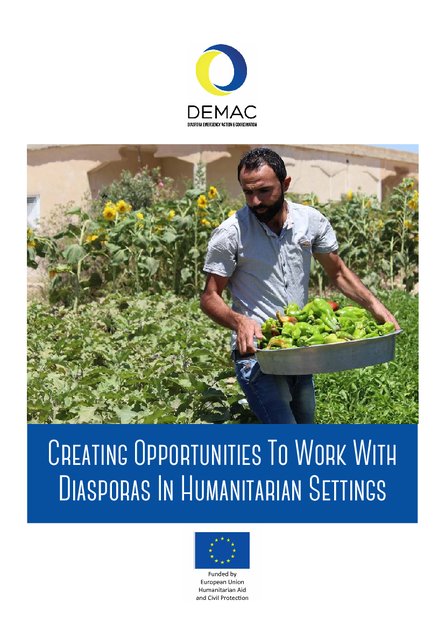
While the contribution of diasporas to development has been widely researched, their input into the humanitarian sphere remains less explored. This study reviews the work of six diaspora organisations (DOs) in Syria and Somalia, where emergency and early recovery responses are needed as a result of droughts, terror attacks or active conflict. It provides a critical analysis and a case study approach to advance the understanding of diaspora organisations’ contributions in humanitarian settings.
Analysts and media commentators have increased the coverage of diaspora-led humanitarian action in recent years, most notably during the Syrian conflict. The work of DOs has not been as widely explored in other crisis settings, or outside of a limited group of large DOs. This research inquires how small- and medium-scale DOs add value in remote and restricted settings where mainstream humanitarian actors face challenges of access, local ownership and sustainability. It concludes on areas of complementarity between DOs and the institutional humanitarian sector, outlining DOs strengths and weaknesses, achievements and areas where they should be supported.
The complexities of operating in emergency humanitarian settings in countries such as Nigeria, Somalia and Syria apply to all organisations – whether international or diaspora. DOs have to negotiate and improve their access to funding and their implementation capacity just like traditional actors. They operate in a common humanitarian ecosystem and are confronted with similar challenges, but are found to use alternative modes of intervention that can also act as sources for best practices. Yet this study reveals that institutional humanitarian actors and diaspora actors rarely interact to improve the implementation and results of humanitarian aid across different emergency settings. The lack of knowledge of each other’s work, capacity and potential contributions presents a missed opportunity towards improving the overall aid ecosystem and its response. This study is a step towards bridging this gap.